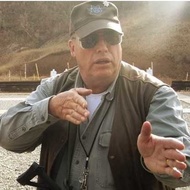29 Jan 15
The Will to Stand:
“The hardship of our exercises is intended less to strengthen the back than to toughen the mind. Spartans say that any army may win while it still has its legs under it; the real Test comes when all strength has fled, and men must produce victory on will alone.”
King Leonidas of Sparta, 480BC, from Steven Pressfield’s, “Gates of Fire: An Epic Novel of the Battle of Thermopylae”
“We were not many, we who stood
Before the iron sleet that day;
Yet many a gallant spirit would
Give half his years, if but he could
To have been with us at Monterey
We are not many, we who pressed
Beside the brave who fell that day;
But who of us has not confessed
He’d rather share their Warrior rest
Than not have been at Monterey?”
From “Monterey” by Charles Hoffman, commemorating American forces, led by Zachary Taylor, who attacked and captured the Mexican city of Monterey on 22-23 Sept 1846, during the Mexican-American War.
The Warsaw Ghetto Uprising, 19 Apr-16 May 1943.
“Ghetto” comes from an Italian word meaning “island.” The term was originally used in Venice to describe the (forcibly segregated) Jewish section of the city.
As the few aging survivors of the Holocaust gathered recently to honor the memory of all who perished seventy years ago, one bright spot that was recalled, and joyfully celebrated, is the 1943 Spring Uprising in Warsaw, Poland.
The War that started in 1939 had enveloped all of Europe. Jews, hated by Nazis, were rounded up, isolated into small areas, transported to death camps, worked to death, and ultimately murdered, by the tens of thousands. The full scope of this mass murder would not be known, nor believed, for decades afterward.
Observant Jews living anywhere in Europe at the time saw the handwriting on the wall and tried to get out. Some did, but most found themselves trapped. Americans and British forces were on their way to liberate them, but liberation would come too late for millions.
Most Jews accepted their fate passively, but a few genuine Warriors, fighting against what they knew and understood were impossible odds, courageously faced the challenge and, like King Leonidas and his Spartans before them, made a respectable accounting of themselves, one we all honor today. And, like Spartans before them, all were killed, but they dared audaciously and died fighting!
After herding Jews into the “Ghetto” in Warsaw, Nazis then began systematically driving them out of their dwellings and on board trains bound for “camps” and certain death. A small, poorly armed, but heroic group of Jewish fighters chose to resist!
The ensuing “battle” was lopsided, but dauntless Jewish resistance fighters shot many Nazis over the next four weeks!
These heroes, killed to a man, served as an animating inspiration to the Founding Fathers if the Nation of Israel, which gained its independence in 1948, once more only after a long, violent, and bitter struggle, but, like Zachary Taylor’s, a successful one this time!
Israel is still an independent nations today, and, like ancient Sparta, has continued to pay a terrible price, in the “currency” of young lives, for its continued existence every year since its inception.
Taking a righteous stand, even when it means certain death, is the indelible mark of true Warrior heroes. We prepare for it from birth! Years, even centuries later, long after passionate issues that defined the history of the day are long forgotten, who come after will visit the hallowed ground and remember that here, on this spot, a courageous few did not falter, but bravely stood against many!
In the end, bacteria come for all of us, and they will have their victory! For one, if remembered at all, I want to be remembered as a Warrior, far from perfect, but who never hesitated to step up to the plate for a noble, even when lost, cause!
“And it isn’t fear; and it isn’t hope,
Esprit, disgrace, nor pride.
It’s just the fiber alone to go one more round
After all the machines have died.”
Anon
“Test your armor, but only test the front!”
From The “Hagakure,” a written record of the thoughts of Tsunetomo Yamamoto (1659-1719) on the Way of the Samurai.
/John



